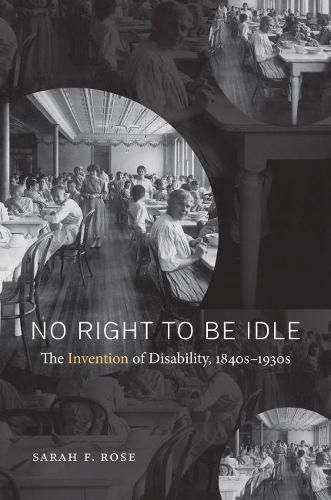Readings Newsletter
Become a Readings Member to make your shopping experience even easier.
Sign in or sign up for free!
You’re not far away from qualifying for FREE standard shipping within Australia
You’ve qualified for FREE standard shipping within Australia
The cart is loading…






In the late nineteenth and early twentieth centuries, a major transformation was occurring in many spheres of society: people with every sort of disability were increasingly being marginalized, excluded, and incarcerated. Disabled but still productive factory workers were being fired, and developmentally disabled individuals who had previously contributed domestic or agricultural labor in homes or on farms were being sent to institutions and poorhouses. In this book, Sarah F. Rose pinpoints the origins and ramifications of this sea change in American society, exploring the ways that public policy removed the disabled from the category of
deserving
recipients of public assistance, transforming them into a group requiring rehabilitation in order to achieve
self-care
and
self-support.
By tracing the experiences of advocates, program innovators, and disabled people caught up in this epochal transition, Rose masterfully integrates disability history and labor history. She shows how disabled people and their families were relegated to poverty and second-class economic and social citizenship. This has vast consequences for debates about disability, poverty, and welfare in the century to come.
$9.00 standard shipping within Australia
FREE standard shipping within Australia for orders over $100.00
Express & International shipping calculated at checkout
In the late nineteenth and early twentieth centuries, a major transformation was occurring in many spheres of society: people with every sort of disability were increasingly being marginalized, excluded, and incarcerated. Disabled but still productive factory workers were being fired, and developmentally disabled individuals who had previously contributed domestic or agricultural labor in homes or on farms were being sent to institutions and poorhouses. In this book, Sarah F. Rose pinpoints the origins and ramifications of this sea change in American society, exploring the ways that public policy removed the disabled from the category of
deserving
recipients of public assistance, transforming them into a group requiring rehabilitation in order to achieve
self-care
and
self-support.
By tracing the experiences of advocates, program innovators, and disabled people caught up in this epochal transition, Rose masterfully integrates disability history and labor history. She shows how disabled people and their families were relegated to poverty and second-class economic and social citizenship. This has vast consequences for debates about disability, poverty, and welfare in the century to come.